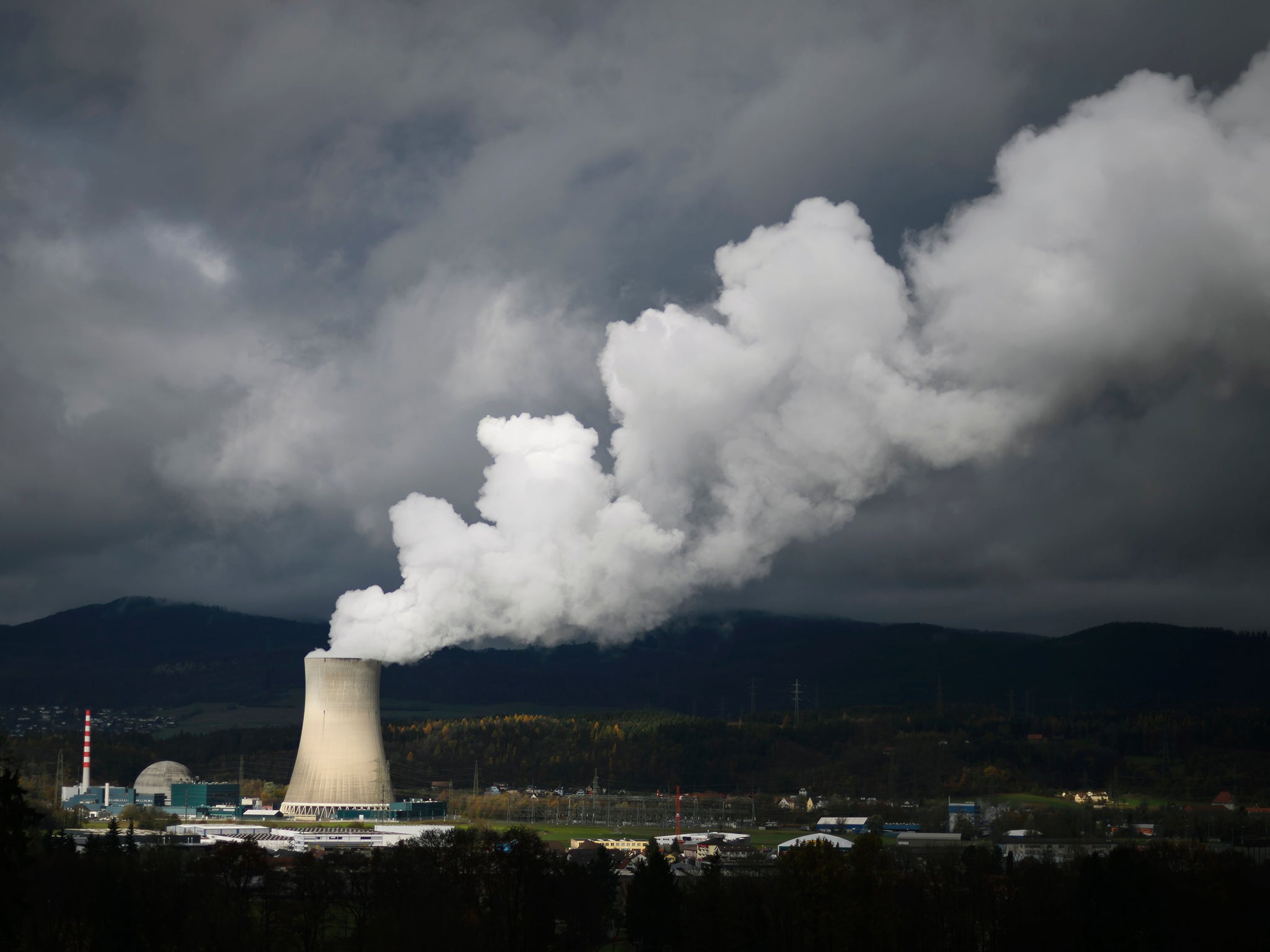Switzerland votes to phase out nuclear energy and switch to renewables
About a third of the country's electricity comes from nuclear reactors

Your support helps us to tell the story
From reproductive rights to climate change to Big Tech, The Independent is on the ground when the story is developing. Whether it's investigating the financials of Elon Musk's pro-Trump PAC or producing our latest documentary, 'The A Word', which shines a light on the American women fighting for reproductive rights, we know how important it is to parse out the facts from the messaging.
At such a critical moment in US history, we need reporters on the ground. Your donation allows us to keep sending journalists to speak to both sides of the story.
The Independent is trusted by Americans across the entire political spectrum. And unlike many other quality news outlets, we choose not to lock Americans out of our reporting and analysis with paywalls. We believe quality journalism should be available to everyone, paid for by those who can afford it.
Your support makes all the difference.Swiss voters have backed government plans to replace the power from ageing nuclear reactors with renewable energy.
A total of 58.2 per cent of voters supported the phaseout of nuclear energy in a binding referendum on Sunday. Under the Swiss system of direct democracy, voters have the final say on major policy issues.
The plan will provide billions of pounds in subsidies for renewable energy, ban the construction of nuclear plants and decommission the country’s five existing ones, which produce about a third of the country’s electricity.
The first nuclear power plant is earmarked for closure in 2019.
"This is a historic day for the country," Green Party parliamentarian Adele Thorens Goumaz told public broadcaster RTS.
"Switzerland will finally enter into the 21st century when it comes to energy."
The move echoes efforts across Europe to reduce dependence on nuclear energy and has been in the making following Japan’s Fukushima disaster in 2011. Germany has announced it will close all nuclear plants by 2022 and Austria banned it decades ago.
The Swiss government wants to boost hydraulic power as well as solar, wind, geothermal and biomass.
Energy Minister Doris Leuthard, from the centre-right Christian Democratic Party, told reporters at a press conference: "The results shows the population wants a new energy policy and does not want any new nuclear plants. The law leads our country into a modern energy future."
The new law is expected to come into effect at the start of 2018 and Ms Leuthard said the plan would cost the average family about 40 francs (£31.64) more a year because a higher grid surcharge would help to fund renewable subsidies.
But critics to the plan claimed the initiative would significantly increase electricity bills. The country’s largest party, the populist Swiss People’s Party, campaigned against the plan and claimed energy bills could ramp up by an additional 3,200 Swiss francs (£2,532) per four-person household a year.
It said the energy transition will be too expensive, would trigger greater reliance on imported electricity and could disfigure the landscape with more wind turbines and solar panels.
Last November, Swiss voters rejected a plan to speed up the phaseout of coal power plants by limiting their operational lifespan to 45 years, which would have meant three of the five nuclear reactors would have had to close this year.
But most other parties and environmental groups hailed the result of the vote a success.
The new plan does not include a clear timetable for the phaseout of nuclear energy but it aims to cut average energy consumption per person per year by 16 per cent by 2020 and 43 per cent by 2035 compared to 2000 levels.
According to the ATS news agency, only 42.3 per cent of eligible voters cast a ballot in the referendum, a low turnout which yet falls within the average over the past two years.
Additional reporting by news agencies.
Join our commenting forum
Join thought-provoking conversations, follow other Independent readers and see their replies
Comments